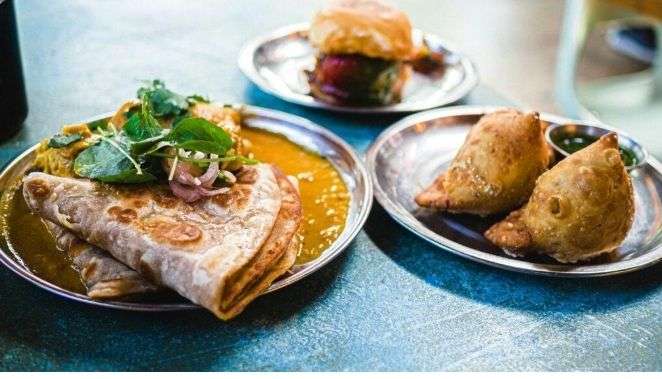Traveling is often described as a transformative experience that goes beyond mere exploration; it has the power to nourish the soul and enrich one’s life in profound ways.
https://youtu.be/sNN0rGOEcX4?si=qfMdzBqxq1vLbETI
The act of traveling opens doors to a myriad of experiences, offering valuable lessons and insights that contribute to personal growth and well-being. Whether it’s embarking on a solo adventure, immersing oneself in different cultures, or simply exploring new landscapes, each journey has the potential to leave a lasting impact on the traveler’s soul. In this exploration of why traveling is good for the soul, we delve into ten amazing things learned from the transformative power of travel.

Contents
Perspective and Self-Discovery
Traveling is a transformative experience that offers numerous benefits for the soul. One of the key lessons learned through travel is the acquisition of perspective. When individuals venture out of their comfort zones and explore new cultures, they gain a fresh perspective on life, challenging their preconceived notions and broadening their horizons.

Another significant aspect of traveling is self-discovery. As individuals navigate through unfamiliar territories and encounter various challenges, they learn more about themselves and their capabilities. Traveling allows individuals to step out of their routine and explore their inner strengths, fostering personal growth and self-awareness.
Traveling Is Good For The Soul: Cultural Appreciation and Patience
Traveling also fosters cultural appreciation. When individuals immerse themselves in different cultures, they gain a deeper understanding of the similarities and differences among people. This experience promotes tolerance, empathy, and a broader worldview, enriching one’s life and broadening their perspective.

Moreover, traveling teaches patience. As individuals encounter various challenges, such as language barriers, cultural differences, and unexpected situations, they learn to remain calm and composed. This skill is invaluable in everyday life, as it helps individuals navigate through challenges with grace and composure.
Traveling Is Good For The Soul: Human Connection and Mindfulness
Traveling also facilitates human connection. When individuals travel, they often form meaningful connections with strangers, showcasing the beauty of human interaction and relationships. This experience nurtures empathy, understanding, and a sense of community, enriching one’s life and fostering a deeper connection with others.
Additionally, traveling encourages mindfulness. When individuals are fully present in the moment, appreciating cultural diversity and the beauty of the world around them, they develop a deeper sense of awareness and appreciation for life. This mindfulness practice can be carried forward into everyday life, promoting a more fulfilling and meaningful existence.
Traveling Is Good For The Soul: Confidence, Independence, and Continuous Learning
Traveling also boosts self-confidence, independence, and problem-solving skills. As individuals navigate through unfamiliar territories and encounter various challenges, they learn to trust their instincts and make decisions independently. This experience showcases their capabilities beyond what they thought possible, fostering a sense of confidence and empowerment.
Moreover, traveling is a lifelong teacher, inspiring wonder, discovery, and a never-ending journey of learning about the world and oneself. This continuous learning process emphasizes the value of experiences over material possessions, highlighting the lasting happiness derived from creating memories and forming connections.
Appreciation of Experiences and Adaptability
Traveling also emphasizes the value of experiences over material possessions. As individuals create memories and form connections through their travels, they gain a deeper appreciation for the experiences they have had and the people they have met. This experience highlights the lasting happiness derived from creating memories and forming connections, rather than accumulating material possessions.
Finally, traveling challenges individuals to think outside the box, fostering adaptability and creativity in dealing with unexpected situations. This experience encourages individuals to be more flexible and open-minded, fostering a sense of resilience and resourcefulness that can be applied to various aspects of life.
CONCLUSION
In conclusion, traveling offers a multitude of enriching experiences that contribute to personal growth and well-being. By broadening perspectives, enhancing self-awareness, fostering cultural understanding, developing patience, nurturing human connections, promoting mindfulness, boosting confidence, encouraging continuous learning, valuing experiences over possessions, and cultivating adaptability and creativity, traveling is indeed good for the soul.
Traveling Tips
Pack Light: Pack only essentials and avoid overpacking to make your journey more manageable.
Make Pictures of Your things: If your things get lost, this will help identify it more easily.
Carry Emergency Cash: Always have around $200 USD in emergency cash in case of unexpected situations.
Get Good Shoes: Invest in comfortable shoes that can handle long walks and various terrains.
Get Vaccinated: Protect yourself from illnesses by getting vaccinated before traveling to certain countries.
Learn to Haggle: Practice haggling to avoid overpaying for items, especially in foreign countries.
Use Points and Miles for Free Travel: Collect points and miles through everyday spending to get free flights, accommodation, train tickets, and other forms of travel.
Take a Jacket: Nights can get chilly, so pack a jacket for extra warmth.
Eat Street Food: Don’t miss out on local cuisine by skipping street food. Just make sure to eat at places where kids are eating to ensure safety.
Get Travel Insurance: Travel insurance is crucial for unexpected emergencies and medical expenses.
Carry a Small Combination Lock: Keep your belongings secure in hostels by using a small combination lock.
Make Extra Copies of Your Passport and Important Documents: Keep photocopies of your passport, driver’s license, visa, vaccination status, and other important documents.
Traveling Is Good For The Soul: Save money by purchasing these items before you travel.
Alert Your Credit Cards and Financial Institutions: Inform your credit card companies and financial institutions about your travel plans to prevent card cancellations.
Call Your Phone Carrier to Add International Service: If necessary, add international service to your phone plan or consider purchasing a local SIM card for the country you will be visiting.
Pack Clothes That Can Do Double Duty: Choose darker colors that can be worn both day and night, and bring a change of clothes in your carry-on in case your luggage is lost or stolen.
Bring a Travel Journal: Keep a log of the places you visit to help you hold on to the memories you make.
Pack Travel-Size Items: Save room in your luggage by using travel-size items.
Bring a Phrasebook: Even if you are fluent in the language spoken in the country you’re visiting, bring along a phrasebook for those times when you may get stumped.
Smile: Traveling is an adventure, so embrace it with a smile on your face.
Frequently Asked Questions (FAQ) About Traveling
- What are the benefits of traveling?
Traveling offers numerous benefits such as broadening perspectives, fostering cultural appreciation, promoting self-discovery, nurturing human connections, and enhancing personal growth. - How can I travel on a budget?
Traveling on a budget is possible by planning in advance, using budget airlines, staying in hostels or budget accommodations, eating street food, and taking advantage of free attractions. - Is travel insurance necessary?
Travel insurance is highly recommended to cover unexpected emergencies, medical expenses, trip cancellations, and lost luggage. - How can I stay safe while traveling?
To stay safe while traveling, research your destination beforehand, avoid displaying valuables in public, be cautious of scams, stay aware of your surroundings, and follow local customs and laws. - What should I pack for a trip?
Pack essentials such as clothing suitable for the destination’s climate, toiletries, medications, travel documents (passport, visa), chargers, adapters, and any specific items needed for activities planned during the trip. - How can I make the most of my travel experience?
To make the most of your travel experience, immerse yourself in the local culture, try new foods, interact with locals, explore off-the-beaten-path destinations, and keep an open mind to new experiences. - How can I deal with jet lag?
To combat jet lag, adjust your sleep schedule before departure, stay hydrated during the flight, expose yourself to natural light upon arrival at your destination, and avoid heavy meals or caffeine close to bedtime. - What are some tips for solo travelers?
Solo travelers should inform someone of their itinerary, stay in safe accommodations, trust their instincts when feeling uncomfortable, blend in with locals to avoid standing out as a tourist, and be open to meeting new people. - How can I make sustainable travel choices?
Sustainable travel choices include reducing plastic waste by using reusable water bottles and bags, supporting local businesses and communities, respecting wildlife and natural habitats, and minimizing carbon footprint by opting for eco-friendly transportation options. - In case of an emergency while traveling What need to do?
In case of an emergency while traveling, contact local emergency services immediately if needed. It’s also advisable to have important contacts saved in your phone or written down in case of connectivity issues.

Safnaa has been working in the travel industry for over a decade, and her expertise and knowledge are reflected in the high-quality content and resources available on travelstutor.com. She is dedicated to providing travelers with accurate and up-to-date information on destinations, accommodations, transportation, and activities, ensuring that they have the best possible travel experience.






